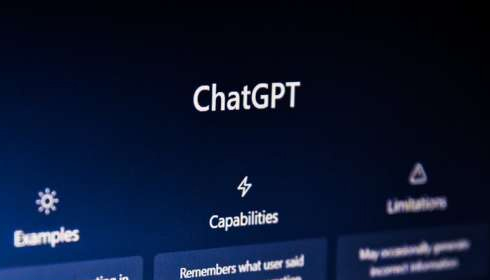
Chatgpt performs better than the symptoms checker websites: study
Researchers from Emory University School of Medicine said that they have found that Chatgpt, an AI tool, outperforms human doctors in treating similar symptoms and even surpasses the widely used WebMD symptoms checker.
Chatgpt, an artificial intelligence (AI) tool, demonstrated comparable performance to human doctors at treating similar symptoms and was even better than the WebMD symptoms checker, a widely used website, say researchers from Emory University School of Medicine, USA.
The research was led by Dr. Riley Lyons, an ophthalmology resident at Emory University School of Medicine, and published in medRxiv, a reprint server for health science. They demonstrated that the new version of ChatGpt, in spite of having "hallucination" issues, did not make any errors when presented with a sample of complaints related to ophthalmic conditions.
Researchers mentioned that the healthcare industry is facing difficulties in the incorporation of generative AI into the healthcare system. Although chatbots can provide better information than Google, there is still a lack of clarity on the safety of new medications and medical devices. Many doctors believe that AI-powered medical tools should go through the Food and Drug Administration (FDA) approval process.
Generative AI and Smoot syntax have caught the attention of all industries. Some have compared the future effects of AI on the internet. While companies are working to implement AI in the fields of radiology, medical records, and more, However, AI in medicine must be applied judiciously to prevent bias and not become entrenched.
Dr Lyons and his co-researchers were astonished by ChatGpt’s level of proficiency, which was released in November 2022.
Commenting on ChatGpt’s skillfulness, co-author Dr Nieraj Jain, assistant professor at the Emory Eye Centre and specialising in vitreoretinal surgery and disease, said the "artificial intelligence engine is definitely an improvement over just putting something into a Google search bar and seeing what you find."
He further recognised the current issues in access to care and the advantages and disadvantages of implementing chatbots in order to bridge the gaps.
The study from Emory researchers is not the only one to validate the accuracy of AI chatbots.
In a recent report published in Nature, computer scientists found that Med-PaLM, an AI chatbot intended to provide medical care, responds favourably to the solutions provided by clinicians.
Similarly, in a recent study, scientists from the University of California-San Diego (UCSD) and other institutions reported that ChatGpt responses are more "empathetic" than those from human doctors.
An AI consultant, James Benoit, said that corporations are investigating the use of chatbots for mental therapies. Investors believe that healthy individuals may enjoy conversing and connecting with an AI friend, Replika, a new chatbot marketed as an AI friend who listens and supports. He said, "We need physicians to start realising that these new tools are here to stay, and they're offering new capabilities both to physicians and patients."
James Benoit, during his postdoctoral study in nursing at the University of Alberta in Canada, published a study and demonstrated that the ChatGpt is more accurate than an online symptoms checker.
Despite the use of AI chatbots, many researchers warn patients not to rely on AI tools. Dr. Mason Marks, a professor from Florida State University, in his opinion published in the Journal of the American Medical Association, said, "That's a little bit of a disappointing bar to set, isn't it?
The lead author of the UCSD study, John Ayers, said that if regulators want the chatbot to improve patient outcomes, randomised control trials could be registered for different results.
The FDA commissioner, Robert Califf, said, "The regulation of large language models is critical to our future." He suggested that the regulators should be flexible in their approach.
A spokesperson from a company associated with the ChatGpt development said, "OpenAI's models are not fine-tuned to provide medical information."
As per the report, the Wall Street Journal informed that Mayo Clinic, in collaboration with Google, added the Med-PaLM 2 chatbot to the system, and WebMD and HIA Technologies Inc. joined forces to provide digital healthcare assistance.
Furthermore, the integration of AI in Microsoft’s Bing and Google's search engines shows that "Dr. Google is on track to become Dr. Chatbot."